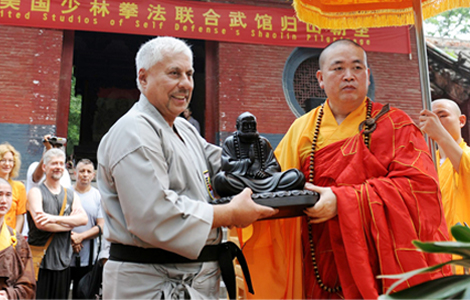Looking abroad for better investment
Updated: 2013-07-01 02:54
By HE WEI in Shanghai (China Daily)
|
||||||||
Unique issue
After making the investment, it is a two-step process before applicants successfully gain green cards, Reiff said.
"You invest the money to get a conditional visa but you have to file for the removal of the conditional one to get permanent residency," she said.
The whole procedure may take as long as five years. But not everyone is lucky enough to get the desired green card, Shen warned.
He said about 20 percent of all applicants may be barred from getting even a conditional offer, most often because they fail to prove their income was legally obtained.
"A unique issue among Chinese investors is the sourcing and tracing of funds. The program requires a clear illustration of the relationship between the money and investors, showing the cash was acquired in a lawful manner," he said.
Once they move on to the second stage, an applicants can be entitled to a green card only if his or her invested project will support at least 10 jobs for more than two years. Shen said about 10 percent of investment may fail to meet this demand.
Nevertheless, investors can never be sure about getting their money back. The official website says the EB-5 visa investors must be seen as risky so that investors are cautious of anyone who makes the claim a project is safe.
For example, although it was promoted by the mayor of Illinois, Pat Quinn, the Chicago Convention Center Project turned out to be a fraud. The two now-indicted con artists controlled a United States Citizenship and Immigration Services-licensed regional center and sharply over-valued a piece of real estate they owned to be used for a proposed development, among other shady maneuvers.
The scandal was especially significant to the program because something like 80 to 90 percent of the money in the EB-5 program came from China.
Shen said the problem was the over-valuation and exaggeration of the project, which helped them collect $11 million in fees and arrange for $145 million in investments, the latter of which never made it into their hands because the US Securities and Exchange Commission caught up with them before that happened.
"Chinese investors tend to look to their personal network of friends and acquaintances for business support and advice. This has given agents a huge advantage in recruiting investors, even though their reputations in the eyes of Chinese investors continues to spiral downward," he said.
Carmichael also believes Chinese investors are less sophisticated than their Western counterparts, given that most Chinese investors mainly focus on the green card issue without knowing how to detect which project is truly viable and safe.
"This is why Chinese investors should seek counsel from licensed Chinese emigration brokers and consider projects with very stable job creation opportunities in industries that are less likely to be affected by economic downturns," he said.
Carmichael's firm represents mostly senior care-related facilities, such as assisted-living. He said such labor-intensive, smaller and quick turn-around projects usually offer low-risk investment opportunities.

 Joey Chestnut wins 7th contest with 69 dogs
Joey Chestnut wins 7th contest with 69 dogs
 Lisicki, Bartoli to vie for new Wimbledon crown
Lisicki, Bartoli to vie for new Wimbledon crown
 Muscle Beach Independence Day
Muscle Beach Independence Day
 Tough workout for Li Na in war of words
Tough workout for Li Na in war of words
 Submersible taps mineral deposits in S China Sea
Submersible taps mineral deposits in S China Sea
 Ecuador finds spy mic for Assange meeting
Ecuador finds spy mic for Assange meeting
 US martial artists arrive at Shaolin Temple
US martial artists arrive at Shaolin Temple
 July 4 in Prescott: Balance of grief, patriotism
July 4 in Prescott: Balance of grief, patriotism
Most Viewed
Editor's Picks

|

|

|

|

|

|
Today's Top News
Baby formula price probe to shake or reshape industry?
Passenger detained over bomb hoax in NE China
High rent to bite foreign firms in China
Egypt's prosecution imposes travel ban on Morsi
Russia more impatient over Snowden's stay
Mandela still 'critical but stable'
Figures show shifts in US, China economies
Chinese electrician killed in Cambodia
US Weekly

|

|







